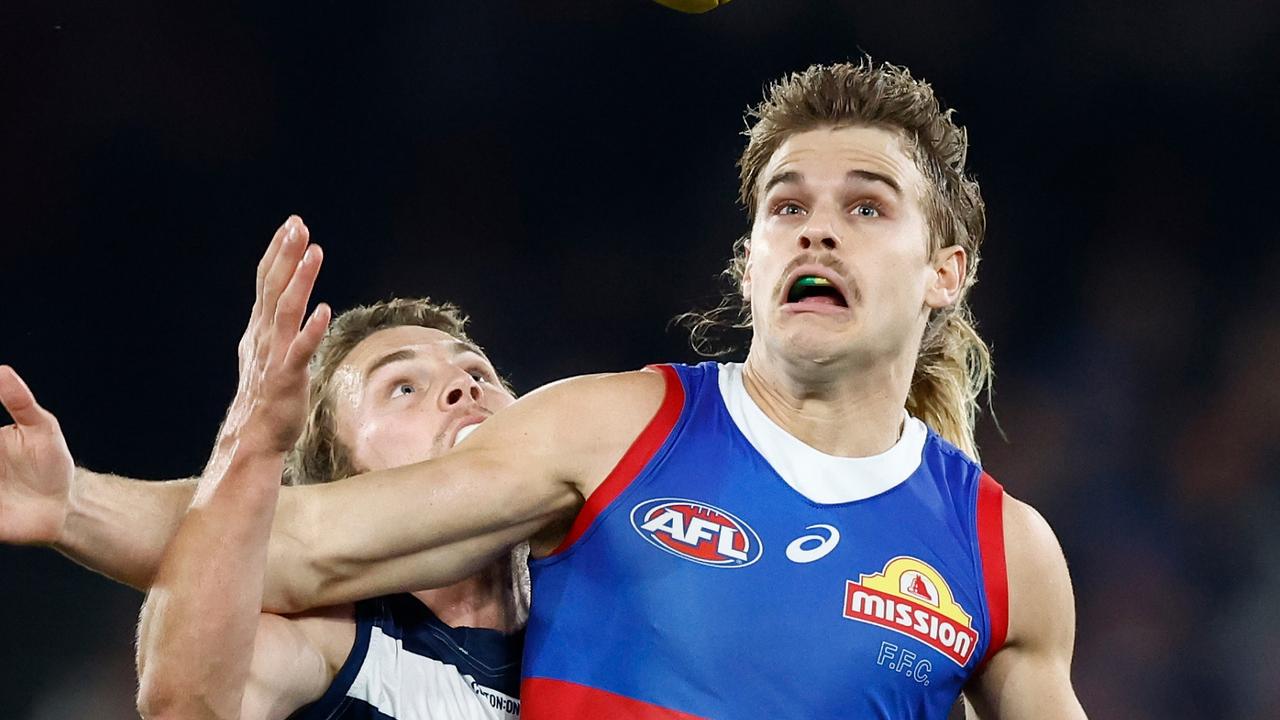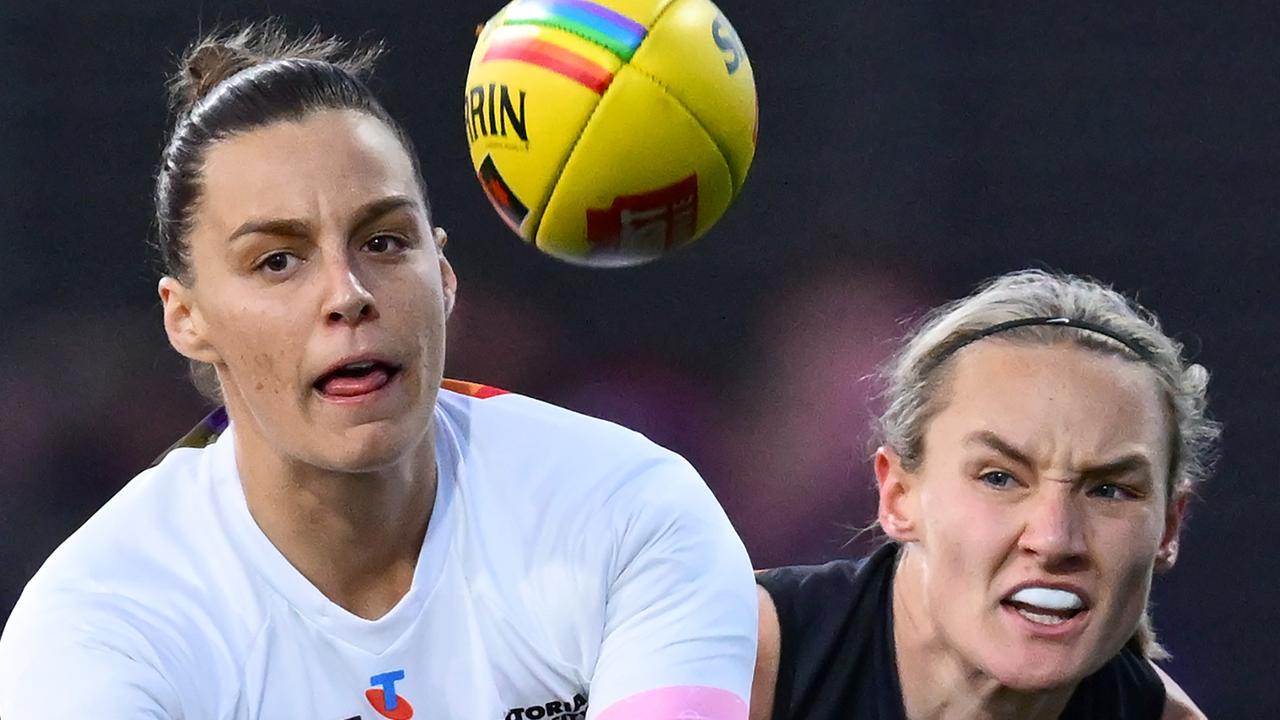How the Western Bulldogs saw their post-premiership slide coming
JUST 32 games ago the Western Bulldogs claimed a historic flag with the third youngest list since 1979. Yet, the slide that followed wasn’t a complete surprise to club supremos.
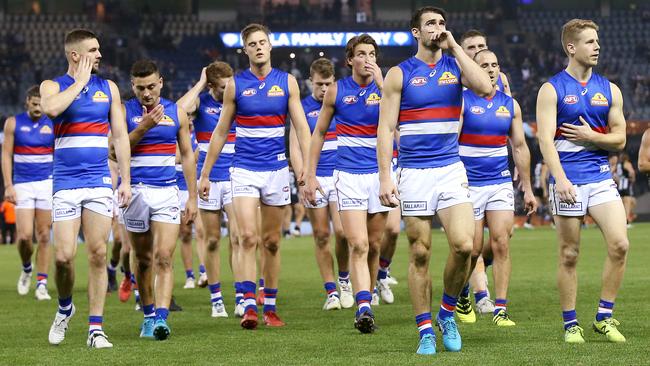
Bulldogs
Don't miss out on the headlines from Bulldogs. Followed categories will be added to My News.
THE beers were flowing freely at the Western Bulldogs’ 2016 Christmas party.
As players, staff and coaches soaked up the revelry in the downstairs bar of the Railway Hotel in Yarraville, a veteran club figure took a moment to contemplate an astonishing season.
“I just sat back and thought, ‘What a year’,” the Dogs figure recalled this week.
HANGOVER: WHERE HAS BULLDOGS’ BITE GONE?
ANALYSIS: WHO HAS BIGGEST HOME GROUND ADVANTAGE
BEVERIDGE: DOGS HAVE SOME SOUL SEARCHING TO DO
“It was a great day, but here they were, all these young players, some in their very first year, and they’ve won an AFL flag - the first one since 1954 and a VFL flag.
“You think, ‘Geez, we were here a couple of months earlier celebrating, the VFL boys were here as well celebrating their day - and they celebrated hard, as they deserved to - but you just wondered how the club was going to handle it.”
Another insider this week said he sensed the hunger had waned as the post-premiership pre-season campaign kicked off.
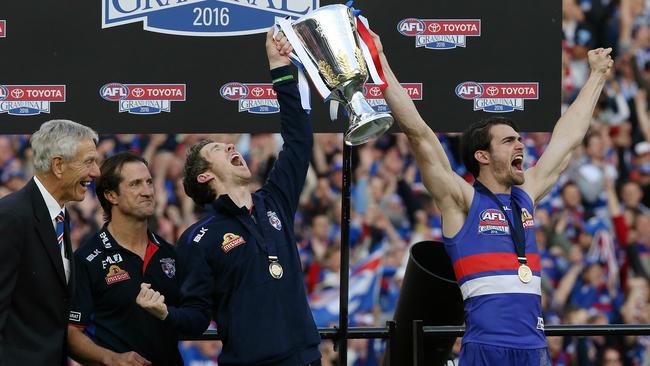
The Dogs won four of their first five games in 2017, but never recaptured the manic appetite for the contest that made Luke Beveridge a premiership coach in just his second year.
A popular theory is that the Dogs were only the best team when it mattered most in 2016 - over the last four weeks of the season - pinching a flag as the planets aligned from seventh on the ladder.
Just 12 members of the premiership side played in last week’s loss to Collingwood, and in all but one game this year they have fielded the youngest and least-experienced team in the league.
DEVELOPER: WHY PLAYERS LOVE TO HATE McCARTNEY
STRINGER: SPLIT WAS MUTUAL, SAYS BEVERIDGE
The Bulldogs have won 15 games and lost 17 since tasting premiership glory.
Dogs football boss Chris Grant this week told the Herald Sun the potential for the slide had been identified in a review conducted in the weeks after the flag.
“When we stripped it back and reviewed we were under no illusions. We thought, ‘We’ve actually got some challenges in front of us’,” Grant said.
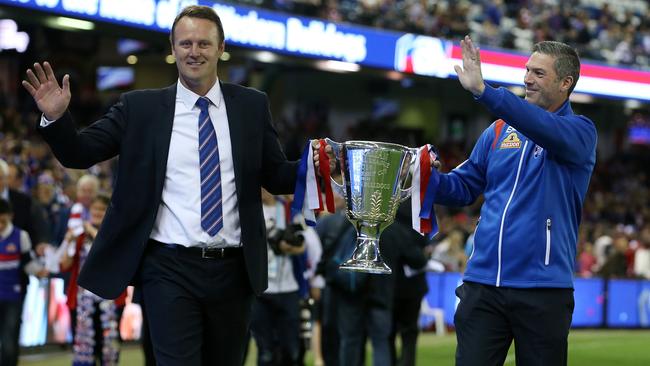
“We knew we were going to lose some experience … and so our development and improvement was not simply going to be in a straight line, particularly if we lost key experienced players to injury.”
But the club’s fall to 10th in 2017 came amid a backdrop of football department disharmony, culminating in the departures of highly-rated recruiting manager Simon Dalrymple and list boss Jason McCartney.
One insider said the troubles could be traced back to the low-key departure of football boss Graham Lowe in February last year.
Although rarely sighted in the media, Lowe, who had worked with the All Blacks and for Scottish Rugby Union, was seen as a steadying influence, someone who provided clear direction on roles and responsibilities.
A reshuffle was made when the Bulldogs’ board installed Grant above Lowe in a new director of football role in June 2016.
As Lowe bowed out, former North Ballarat Rebels coach Chris Maple, who coached the Dogs’ VFL team to a flag in 2014, filled a new general manager of football position under Grant.
Some believe the mix isn’t working.
One ex-staffer said the football department leadership lacked experience and Beveridge had “an unbelievable powerbase”.
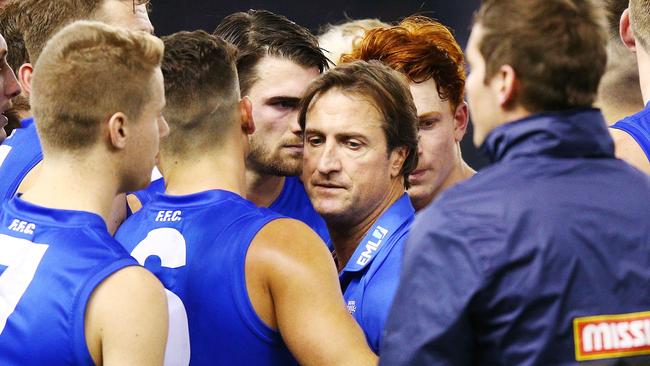
“Not many people say no to him and that’s the big downfall, there’s not the Neil Balme-type figure who can come in and tell the coach: ‘No mate, keep out of that area, just do your job,” he said.
The former staff member recalled sending an email to an executive about a minor matter before receiving a reply CC’d to Beveridge.
“I remember thinking, ‘What’s this got to do with him? Surely he’s got more important things to worry about,” he said.
A player agent also suggested Beveridge had “too much control”, a claim the club rejects.
Tensions flared as the losses mounted last year at meetings of the list management committee comprised of Dalrymple, McCartney, Maple, chief executive Gary Kent, Beveridge and Grant.
A revolving door in the CEO’s office didn’t help.
Kent had replaced David Stevenson, who had replaced Simon Garlick. Ameet Bains from St Kilda took over from Kent in December last year
Bains has had an immediate impact, appointing Sam Power from Carlton into a beefed up list manager position soon before Dalrymple defected to the Swans, replaced by Nick Austin from Richmond.
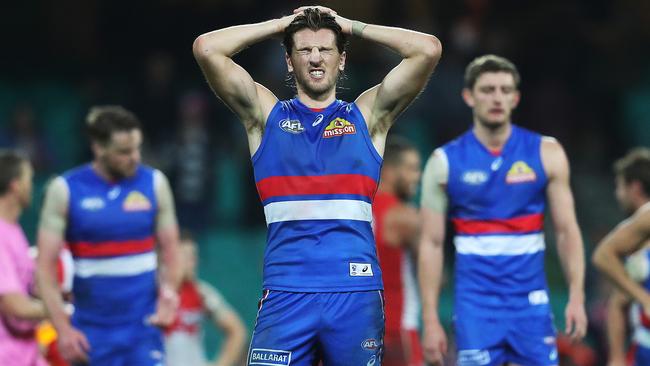
“The fundamental change that was required was to restructure our list management department to have one single point of responsibility, which is commonplace across most clubs,” Bains explained.
“So you have a list manager who oversees the entire department and the recruiting manager reports through to that person.
“If the list manager and recruiting manager are on the same level of responsibility it can cause issues if you’ve got different points of view.
“Structurally, there was a change that was required.”
Partying by a small group of players began well before the premiership and is not denied by the club.
“Part of Bevo’s philosophy is to give the players a long rope and some took advantage of it,” an insider said.
The tipping point came in October last year when premiership forward Jake Stringer was shown the door.
The Dogs insist the Stringer’s departure was a mutual decision made with the blessing of the list management committee and the player’s management, but not everyone agrees.
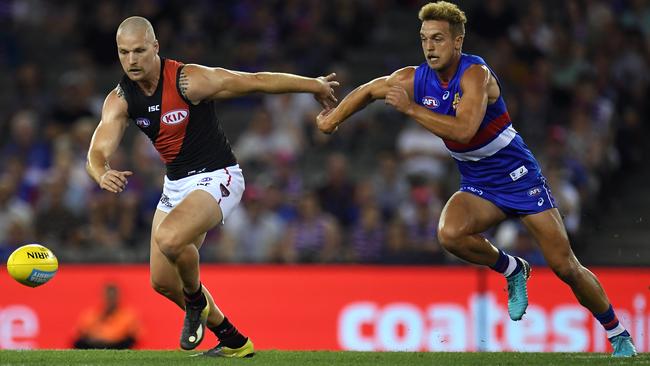
“That was clumsily handled — and led to the Josh Schache trade, which also raised eyebrows in the industry given their lack of initial interest,” the ex-staffer said.
Pressed on the Schache trade, Grant said: “We were always keen on him.”
The Tom Boyd deal — seven years at $7 million — has three more seasons to run but with a flag in the bag and his wages down to about $750,000 a season thanks to heavily front-ended payments, is now considered less of an issue.
Beveridge is loved across the club and most believe the situation is retrievable as the club sits 14th on the ladder.
“We get that on-field is not where it needs to be and everyone is working hard to turn that around, but the club overall is in as healthy a position as it’s ever been,” Bains said.
“With 12 games to go there are still very much aspirations on finals, but there are some realities on our list profile and certainly our team profile week to week that mean it has been challenging.
“We also acknowledge, even withstanding all of that, that we have underperformed at different times this year.”
Watch every match of every round of the 2018 Toyota AFL Premiership Season. SIGN UP NOW >
Originally published as How the Western Bulldogs saw their post-premiership slide coming

